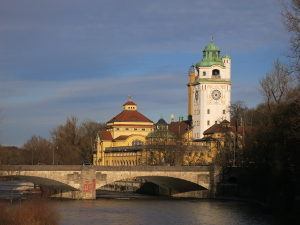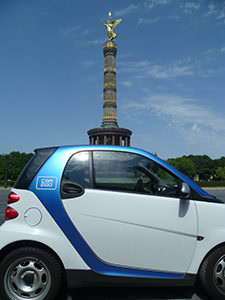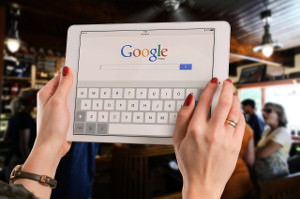Administration in Munich
You should be aware that Germans surely love their bureaucracy.
Don’t make the common mistake and leave everything until the last minute.
With our insider tips for Munich you will be able to enjoy life in this fantastic city from day one.
Here are the essential to-do’s, which you should cross of your list after moving to Munich.
Insider tip: The Kreisverwaltungsreferate (abbr. KVR – an institution for all kinds of administrative stuff with many different locations all over Munich), and the Bürgerbüros (where you do your registration e.g.) are chronically understaffed and you are faced with excessive waiting times sometimes. To avoid this, we highly recommend being there 45 to 60 minutes before they actually open.
1. Get a bank account
Getting a bank account in Munich should be your no. 1 priority, as you might already know from our article on the start page.
Without a German bank account you will not be able to rent a flat or sign up with an internet provider, electricity provider or even get a German mobile contract. Continue reading about how to sign up for a bank account in Munich.
Insider tip: With DKB – Deutsche Kredit Bank* you can already sign up for a bank account in Germany from abroad.
Other German banks will ask you for a German address, which is kind of a catch 22.
As already mentioned, no German bank account means not being able to rent a place in Munich, which means no German bank account. You get the catch.
Continue reading about the best bank accounts in Munich.
2. Finding an apartment to rent in Munich
This might be the most important to-do for those of you who don’t have the possibility of staying at a friend’s house or a company flat.
In any other city, the normal course of action would be to check the usual websites, look at many apartments, and then hopefully get your dream apartment.
But Munich is a bit different as there are too many people and not enough places – it’s not abnormal meeting up to 30 people viewing a flat and each one schmoozing the landlord to be picked as the tenant.
So if you already know people in Munich, ask them to keep an ear out in case they hear something about a place.
Insider tip: Check Immowelt for apartments if you don’t have people who can help you with first hand info about empty flats.
Make sure to show up to as many viewings as possible and have all necessary documents ready to hand in straight away.
Ideally you have a copy of your identity card, a brief C.V., and any other contact data with you.
If you are short of time and nerves we strongly recommend approaching a real estate agent.
It will cost you a minimum of 2.000€ but this way you surely will find an apartment in a short time , and often the nicest flats are not publicly offered but only via agencies.
3. Registration
After you’ve successfully signed up for your bank account and ideally you’re already living in your new apartment, you should let the city officially know that you now live in it!
And by the way, you only get a resident parking permit once you are registered in Munich – such a permit is essential if you bring a car with you as most of the parking space is subject to charge or even completely forbidden for non-residents.
Moving to Munich from another EU country is really easy. You just have to find the Bürgerbüro nearest to your flat, bring your identity card, and fill out the registration form you’ll be given there.
You will get the confirmation of registration right away – welcome to Munich! Your next stop is the Kraftfahrzeugzulassungs und Fahrerlaubnisbehörde.
For those moving to Munich from a non-EU country, you have to follow the rules of applying for a permit of residence relevant to your home country.
Once your application for a permanent stay in Germany is approved by the German authorities, you can register yourself as a Munich inhabitant.
4. Car registration
There is only one place where it’s possible to register your foreign car in Munich, the Kreisverwaltungsreferat Kraftfahrzeugzulassungs und Fahrerlaubnisbehörde, on Eichstätter Straße 2.
Be ready to be there in the morning at latest 6:45h or you will face a huge queue.
Once the doors open, go directly to the counter and tell the ladies what you want.
They will nicely point you to your waiting area and hand out a number.
Once in your area, watch out for your number being displayed on the sign.
Under certain circumstances you can keep your foreign number plates, for example if your car is registered under your parents‘ name, or someone else’s who still lives in your country.
There are many documents and steps that are mandatory in order to „germanize“ your vehicle. To get German number plates your registration in Munich, as you know by now, is essential.
Other than that, make sure you have ALL documents shown below with you; they show no mercy if you show up without all of them.
In front of the office you find two shops where you can let coin your number plate.
+ Your identity card or passport
+ If you register the car for another person: power of attorney (a Vollmacht: be sure to use the one provided under the section „Wichtige Unterlagen“) and the original identity card of the person you are registering the car for
+ SEPA-Mandat: this can be downloaded on the same page as the power of attorney. Here you have to fill in your bank data for the car tax to be charged. Car tax depends on the exhaust emission values, which are measured in the TÜV inspection
+ Confirmation of a passed general car inspection: Absolutely inevitable, you can either get it directly at the TÜV or from DEKRA, an institution similar to the TÜV. The full inspection (Hauptuntersuchung, or HU) including emissions test (Abgasuntersuchung, or AU) costs around €100.
It doesn’t really make any difference which one of the two venues you choose. With TÜV you can make an appointment in advance, with DEKRA you can’t.
I chose DEKRA because it was just closer to my work; I went there without an appointment and got served right away.
You can go to the inspection with your foreign number plates, that’s no problem at all. To pass the inspection, you will also need:
+ CoC – certificate of conformity: if you bought your car within the last 5 years, the CoC should be among the documents you have.
If you can’t find it anymore, ask for it at a car dealer – they can provide it again (of course for a fee).
If your car is an older model, you might being faced with the problem that a CoC for your model doesn’t exist, in which case you are in trouble: either you manage to get a confirmation of all technical details from your car manufacturer, or you have to get a so-called Vollgutachten (whole vehicle report).
This report costs a decent amount of €€€, and you can get it at either TÜV or DEKRA – welcome to German bureaucracy!
+ eVB, the Elektronische Versicherungsbestätigun): the confirmation of cover. You have to contact an insurance in advance to get an eVB
+ Your current car papers and your foreign number plates.
If you don’t have them anymore for whatever reason, a confirmation from the registration office in your country stating that your car has been de-registered is also acceptable
Insider tip: In Germany it’s rather cheap (around €13) to get a vanity plate, just look for the one you like on the internet and take the printed confirmation with you.
In total, the registration including vanity plate will cost you approximately €100.
5. Resident parking permit
It’s essential to have one of these if you don’t have a garage available with your flat.
In most areas of Munich you need a parking permit if you don’t want to pay for parking over and over again, every day.
There is only one KVR location where you can apply for a permit but don’t worry, this department of the KVR on Pilgersheimer Straße is rather fast.
When we registered my girlfriend’s car, it didn’t take us longer than 30min (and we arrived there at 10am) including waiting time.
Don’t forget to pick your number from the little machine located beside the waiting room. There are some documents you need to bring:
+ The completely filled out application form. You can either download the form „Antrag Parkausweis Bewohner“ under „Formulare/Informationen“ at home or grab one in the waiting room
+ Copy of your car license (Zulassungsbescheinigung, the document that was handed out to you when you passed the general inspection)
+ If the car is not registered on your name: confirmation from the vehicle owner stating that you regularly use their car
6. Internet contract
If you haven’t already signed up for an internet connection, it’s time to do it now!
Have a look at our section Best Internet Provider to be sure you pick the one that suits you best.
Insider tip: For super fast internet, sign up with M-Net or 1&1*. Both internet providers are among the best internet providers in Munich according to many independent consumer magazine tests.
Believe it or not, these are the only important administrative things to do after moving to Munich.
Now it’s time to get yourself a phone contract in Munich if you don’t want to pay further roaming costs.
Are you hungry after all this administrative work? Then have a look at the best places to eat in Munich and enjoy your meal – guten Appetit!
*Since I love to keep my website as up-to-date as possible for you awesome readers, my content may contain affiliate links. All the links in this post marked with ‘*’ are such affiliate links. Even though I might receive an affiliate commission at no extra cost to you, all opinions on my website remain my own.




